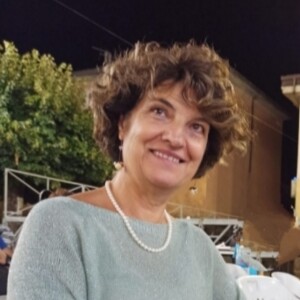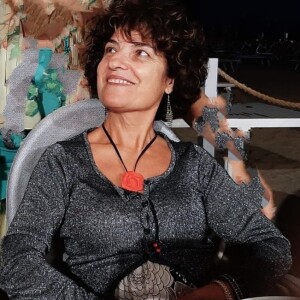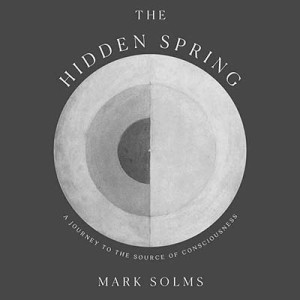Talks On Psychoanalysis
Neuropsychoanalysis
Episodes

Tuesday Apr 16, 2024
Tuesday Apr 16, 2024
How can neuropsychoanalysis help us to understand Artifical Intelligence? We encounter Artificial Intelligence everyday, which is modeled to a certain extent on human consciousness, and so AI gives us a view into what we know and what we may not know about ourselves. In addition, we now develop our sense of self and others both within the virtual and material worlds – AI could be said therefore to not only be modeled on human consciousness, but it is also impacting our development.
In this podcast episode, Dr. Rosa Spagnolo discusses consciousness, artificial intelligence and the development of superintelligent AI. She considers what this implies for human and AI development, identifications, subjectivity, and suffering, leveraging neuropsychoanalytic understandings of the mind.
Dr. Rosa Spagnolo is a child neuropsychiatrist, developmental psychotherapist and psychoanalyst member of the Italian Psychoanalytic Society and the IPA. She is co-chair and co-founder of the Italian Psychoanalytic Dialogues Association. Dr. Spagnolo is a member, regional coordinator and chair of the Italian group of the International Neuropsychoanalysis Society. She teaches at several institutions and is a sought-after speaker at national and international conferences. She has written several books and articles on a variety of topics including: Eating disorders, group analytic psychotherapy, neuropsychoanalysis, and neuropsychiatric developmental disorders. She was nominated for the Gradiva award in 2019.
A subtitled version of this podcast is available on our YouTube channel:https://youtube.com/playlist?list=PLhxiwE76e0QaOquX3GujdwNLFsgxUQNXz&si=yf381EDu3pess6Yz
You can download a copy of the paper here: https://docs.google.com/document/d/1DYtz3e3Dq9WC8qGhH3KqkCrM4ejPAINj/edit?usp=sharing&ouid=100400904585889441765&rtpof=true&sd=true
This Podcast Series, published by the International Psychoanalytical Association, is part of the activities of the IPA Communication Committee and is produced by the IPA Podcast Editorial Team.
Head of the Podcast Editorial Team: Gaetano Pellegrini.Editing and Post-Production: Massimiliano Guerrieri.
This episode has been published also in French
This episode has been published also in Italian

Thursday Apr 20, 2023
Thursday Apr 20, 2023
Our self is always there and present throughout our whole life. Despite the many social, environmental and ecological changes as well as the major bodily changes, our self remains one and the same throughout the changes of our life. Where and how is the temporal continuity of our self coming from?
Georg Northoff is a philosopher, neuroscientist and psychiatrist, holding degrees in all three disciplines. He works in Ottawa/Canada holding a Canada Research Chair for Mind, Brain Imaging, and Neuroethics. His research focuses on the relationship between brain and mind. The question driving him is: “why and how can our brain construct mental features like self, consciousness, etc.” His approach to this complex answer is as unique as it is simple: he proposes that the brain’s constitutes its own inner time and space which, if properly aligned to and synchronized with the world’s outer time and space, will yield mental features like self and consciousness. This led him to develop a spatiotemporal theory of brain-mind relationship in all three fields, neuroscience, psychiatry and philosophy.
He is one of the leading figures in linking philosophy, psychiatry, and neuroscience having developed non-reductive neurophilosophy. He authored over 300 journal articles and 18 books in neuroscience, psychiatry and philosophy which are translated into several languages including “Neuro-philosophy and the Healthy Mind” (2016) Norton Publisher, and “Neurowaves" (McGill University Press 2023) and "Neuropsychoanalysis, an introduction" (Routledge 2023).
This episode is available also in German
All papers etc, can be found on the website: www.georgnorthoff.com
See recent Podcast for broader audience: www.youtube.com/watch?v=lDX3xOVHB18&t=237s
References:
Spagnolo R, Northoff G (2022) The dynamic self in psychoanalysis. Routledge
Northoff G (2023) Neuropsychoanalysis. An introduction. Routledge publisher
Northoff G (2023) Neurowaves. Brain, time and consciousness. McGill University Press
Northoff G, Scalabrini A. (2021) "Project for a Spatiotemporal Neuroscience" - Brain and Psyche Share Their Topography and Dynamic.

Tuesday Mar 21, 2023
Tuesday Mar 21, 2023
What is the relationship between the mind and the body, and how does it shape our understanding of the self? In this episode, Rosa Spagnolo presents her reflections on the topic, published in her recent book, written with Georg Northoff. In the book, she delves into how out-of-body experiences can shed light on the complex dynamics between the self and the world. She examines the relationship between the body and the brain, the role of time and space in shaping our experience of the self, and the intersection between psychoanalysis and neuroscience. Along the way, she touches on the potential implications of virtual reality on our sense of self.
Rosa Spagnolo, MD, Child Neuropsychiatrist; Developmental Psychotherapist; Psychoanalyst, Full Member of the Italian Psychoanalytic Society (SPI), IPA Member. She is Co-Chair and co-founder of the Italian Psychoanalytic Dialogues (IPD) association, which organizes annual Rome Conferences, on psychoanalytic and neuroscientific issues. She is a member of NPSA and chair of the "Italian Group of NPSA". She is chair of the IPAWEB page: the Psychoanalysis in the Age of Neuroscience and chair of the SPIWEB page of Neuroscience.
Teaches "Psychology of Nutrition" and "Treatment of Eating Disorders" at the University - Tor Vergata -, Rome, Master II level in "Diagnosis and Treatment of Eating and Weight Disorders". Teaches "Psychoanalysis and Culture" at the Graduate School of Psychoanalytic and Group Analytic Psychotherapy. Works in Rome at the Filippo Smaldone Institute for the rehabilitation of deafness, learning and speech disorders, neurodevelopmental disorders. She is the author of numerous publications as well as a conference speaker and lecturer on neuropsychiatric developmental disorders and psychoanalytical topics.
Books
Spagnolo R. (2012): La forza delle immagini attraverso la catena associativa dell’analista. In: Domenico Chianese e Andreina Fontana (Eds), Per un sapere dei sensi. Immagini ed estetica psicoanalitica. Roma: Edizione Alpes, 2012
Spagnolo R.(2016) : La ricerca empirica sul sogno, in: Antonello Colli. Psicoterapia Psicodiamica (pp. 232-234). Roma : Carrocci Editore, 2016
Spagnolo, R. (2017). An unexpected Pathway for Interpsychic Exchange: Music in the analysis of Young Adult. In B.N. Seitler & K.S. Kleinman (Eds.), Essays from Cradle to Couch (pp. 341-357). IPBooks, Astoria: NY.
Spagnolo R. (ED) (2018): Building Bridges, The impact of Neuropsychoanalysis on Psychoanalytic Clinical Sessions. Routledge, London and New York. Nominato al Gradiva Awards, New York, 2019
Spagnolo R. & Northoff G.(2021): The Dynamic Self in Psychoanalysis. Neuroscientific foundations and clinical cases. Routledge, London and New York
Spagnolo R. & Northoff G (2022): Il Sè dinamico in psicoanalisi. Fondamenti Neuroscientifici e clinica Psicoanalitica. Franco Angeli Editore.
Spagnolo R. (2007) "Chantal" - Maremmi Editore, Firenze.
This episode is available also in Italian
This episode was read by Eleonora Maruca.Editing and Post-Production: Massimiliano Guerrieri.

Sunday May 23, 2021
Sunday May 23, 2021
In today’s episode, Mark Solms generously summarizes his latest book “The Hidden Spring: A Journey to the Source of Consciousness” and highlights -in ten clear principals- his thoughts. He shows us how the source of consciousness is deeply bound up with our affects, and traces the key concepts of Psychoanalysis in light of the most recent neuroscientific discoveries. In this work he not only unveils those experimental confirmations that Freud himself hoped for since the beginning of his theories, but also arrives -with an admirable clarity- to specify some evolutionary junctions for the current psychoanalytic models.
Mark Solms is a South African psychoanalyst and neuropsychologist who is known for his discovery of the brain mechanisms of dreaming and his use of psychoanalytic methods in contemporary neuroscience. He holds the Chair of Neuropsychology at the University of Cape Town and Groote Schuur Hospital in the Departments of Psychology and Neurology, and was the President of the South African Psychoanalytical Association. He is also Research Chair of the International Psychoanalytical Association (since 2013), he founded the International Neuropsychoanalysis Society in 2000 and was a Founding Editor of the journal Neuropsychoanalysis. He is is also Director of the Arnold Pfeffer Center for Neuropsychoanalysis at the New York Psychoanalytic Institute, as well Director of the Neuropsychoanalysis Foundation in New York, a Trustee of the Neuropsychoanalysis Fund in London, and Director of the Neuropsychoanalysis Trust in Cape Town.
REFERENCES
Solms, M. (2021) Revision of drive theory. Journal of the American Psychoanalytic Association (JAPA)
Solms, M. (2020) New project for a scientific psychology: General scheme. Neuropsychoanalysis 22:5-35
To contact the author directly please email him at mark.solms@neuropsa.org